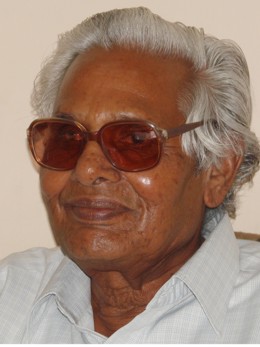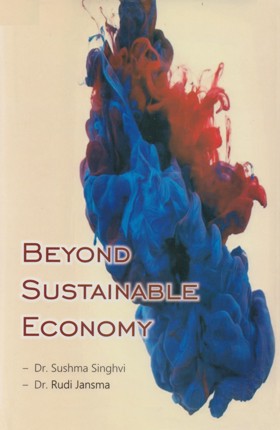Aparigraha Paramo Dharma
There is no Religion higher than Aparigraha
Our lifestyle and its impact on society
The word 'lifestyle'[1] can be defined as the way in which a person lives. It includes the place he lives in, things he owns, the kind of job he does and the activities he enjoys. It is an individual's lifestyle that makes him popular or unpopular, fascinates others towards him, earns him respect or dislike in society and contributes largely to social excellence or disharmony. A man's lifestyle is shaped by his way of thinking, by his behavior and by the type of lifestyle he observes as he moves in society. The lifestyle of an ancient man used to be simple, free from ostentation and gaudiness. He lived in a modest house, wore simple clothes and ate a simple diet. There were some persons in the ancient age as well whose lifestyles were dominated by pomp and show and affected the other people in society.
A lifestyle is an individual choice, but since he lives in society, he has to choose a lifestyle which doesn't affect the people around him adversely. If he wastes food, hunts animals for fun or for the sense of his taste, uses vehicles indiscriminately, pollutes the environment, picks quarrels with people on trivial issues, doesn't limit his desires and possessiveness, indulges in senseless violence, it makes it clear that his lifestyle is harmful not only to himself but also to society and the nation. It is this type of individual lifestyle that is becoming a serious cause for concern. Most of the people in the modern world are inclined towards this type of lifestyle. It is comfort-oriented and luxurious. Man is addicted to the use of machines and is removed far from nature. Not only this, in order to look more handsome he is destroying nature itself and is vying with one another in the race for material possessions. Every one wants not only to be a billionaire but to be the richest person of the world. To prove his supremacy over others he needs weapons. He has seen the devastation caused by the nuclear holocaust[2] of Hiroshima and Nagasaki, but the catastrophe, instead of causing tears in his eyes, drives him to think that it can be a powerful instrument to wipe out his enemies. We see the heads of some countries toying with this idea. They are trying to steal the formula of making nuclear bombs and are pursuing their heinous goals by stealth. The world today is facing many problems which owe their origin to bad lifestyle. They include global warming, dreadful diseases like cancer, HIV-AIDS and cardiac arrest, ecological and environmental degradation, depletion of the main sources of energy, i.e. petroleum and coal, lack of drinking water, food and pure air which sustain human and non-human life on this planet. Thanks to the campaigns launched by some grassroots organizations at global level more and more people have begun to realize the peril of the extinction of life on earth. Every right thinking person is of the view that it is time we turned our attention to simplifying the individual lifestyle at global level if we want our survival into the third millennium. Therefore aparigraha, non-possession, offers an alternative worth paying attention to.
Non-possession is the greatest dharma: aparigraha paramo dharma
Many have heard the Jain slogan ahiṁsā paramo dharma (nonviolence is the highest religion). Ahiṁsā is the basic identity of Jainism and most scholars mention ahiṁsā first when they discuss Jainism but in the present context when we examine the problems like environmental and ecological degradation, climate change, poverty, shortage of drinking water and the fast depleting resources on the planet which sustain our life, we realize that though the problem of increasing violence is considered a threat to our existence, the root cause of violence is our ever-increasing propensity for possessing material objects and lust for amassing wealth. The American model of consumption as the basis of our growth is being emulated by most people of the world. As a matter of fact the world is seized by the devouring spirit of possessiveness. The more money we get, the more we tend to become greedy. Our attachment to wealth is so deep that we do not want to give even a single penny to the poor man. Our cruelty is increasing at a formidable rate. We have actually forgotten the basic spirit of Mahavira's message.
In the Thaṇam Māhavīra says:
- No one can know dharma without having deep insight into violence and possession.
- No one can attain enlightenment without having deep insight into violence and possession.
- No one can develop saṁyāma (self-restraint) without having deep insight into violence and possession.
After having said that, Mahāvīra gives a solution in the following words:
- Anyone can know dharma by having deep insight into violence and possession.
- Anyone can attain enlightenment by having deep insight into violence and possession.
- Anyone can develop self-restraint by having deep insight into violence and possession.
 Dr. Rudi Jansma
Dr. Rudi Jansma
 Dr. Sohan Lal Gandhi
Dr. Sohan Lal Gandhi
